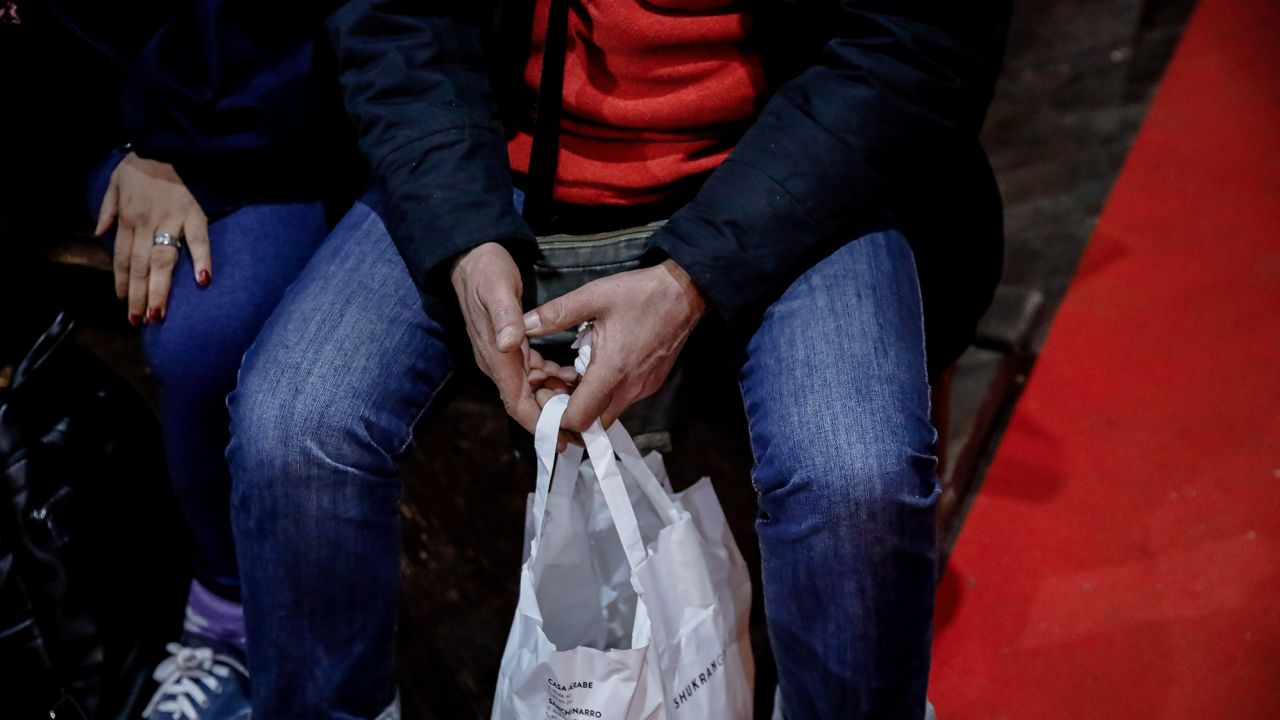The number of millionaires in the world increases in 2021, according to Credit Suisse 0:58
(CNN) --
The world's richest residents have gotten much richer, much faster than everyone else over the past two years.
The richest 1% captured almost twice as much new wealth as the rest of the world during that period, according to Oxfam's annual report on inequality, published on Sunday.
His fortune skyrocketed by $26 billion, while the remaining 99% only saw their net worth increase by $16 billion.
And the wealth accumulation of the super-rich accelerated during the pandemic.
Looking at the last decade, they got just half of all the new wealth created, compared to two-thirds over the last few years.
The report, which is based on data compiled by Forbes, is timed to coincide with the start of the World Economic Forum's annual meeting in Davos, Switzerland, an elite summit of some of the world's wealthiest people and leaders.
Jeff Bezos has a plan to spread his fortune 3:12
Meanwhile, many of the less fortunate struggle every day.
Some 1.7 billion workers live in countries where inflation exceeds wages.
And poverty reduction probably stalled last year after the number of poor people in the world soared in 2020.
“While ordinary people make daily sacrifices on essentials like food, the super-rich have exceeded even their wildest dreams,” said Gabriela Bucher, executive director of Oxfam International.
"Just two years later, this decade is shaping up to be the best yet for billionaires: a great 1920s boom for the world's richest."
advertising
The fortunes of billionaires
Although their wealth has declined somewhat over the past year, billionaires around the world are still much richer than they were at the start of the pandemic.
His net worth is $11.9 trillion, according to Oxfam.
While that's almost $2 trillion less than at the end of 2021, it's still well above the $8.6 trillion billionaires had in March 2020.
The rich are benefiting from three trends, said Nabil Ahmed, director of economic justice for Oxfam America.
At the start of the pandemic, world governments, particularly the richest countries, poured trillions of dollars into their economies to prevent a collapse.
That made stocks and other assets increase in value.
This is how the wealth of the 5 richest people in the world is distributed 3:01
“A lot of that fresh cash ended up with the ultra-rich, who were able to take advantage of this stock market rise, this asset boom,” Ahmed said.
"And the fair tax guardrails weren't in place."
Also, many corporations have done well in recent years.
Some 95 food and energy companies have more than doubled their profits by 2022, Oxfam said, as inflation sent prices soaring.
Much of this money was paid out to shareholders.
In addition, longer-term trends of the dismantling of workers' rights and further market concentration are increasing inequality.
In contrast, global poverty rose sharply at the start of the pandemic.
Although some progress has been made in reducing poverty since then, this is expected to have stalled in 2022, partly due to the war in Ukraine, which exacerbated high food and energy prices, according to Bank data. World cited by Oxfam.
It is the first time extreme wealth and extreme poverty have risen simultaneously in 25 years, Oxfam said.
tax the rich
To counter this growing inequality, Oxfam is calling on governments to raise taxes on their wealthiest residents.
It proposes introducing a single wealth tax and extraordinary taxes to end speculation in global crises, as well as permanently increasing taxes on the richest 1% of residents to at least 60% of their earned income and the capital.
Marcelo Longobardi's analysis of the poverty rate in Latin America 1:36
Oxfam believes that rates in the top 1% should be high enough to significantly reduce their numbers and wealth.
The funds must then be redistributed.
“We are facing an extreme crisis of concentration of wealth,” Ahmed said.
“And it's important first and foremost, I think, to recognize that it's not inevitable.
A strategic precondition for controlling extreme inequality is taxing the ultra-rich.”
The group, however, faces an uphill battle.
Some 11 countries cut taxes on the rich during the pandemic.
And efforts to raise taxes on the rich failed in the US Congress in 2021, despite Democrats controlling both chambers and the White House.
davos forum

